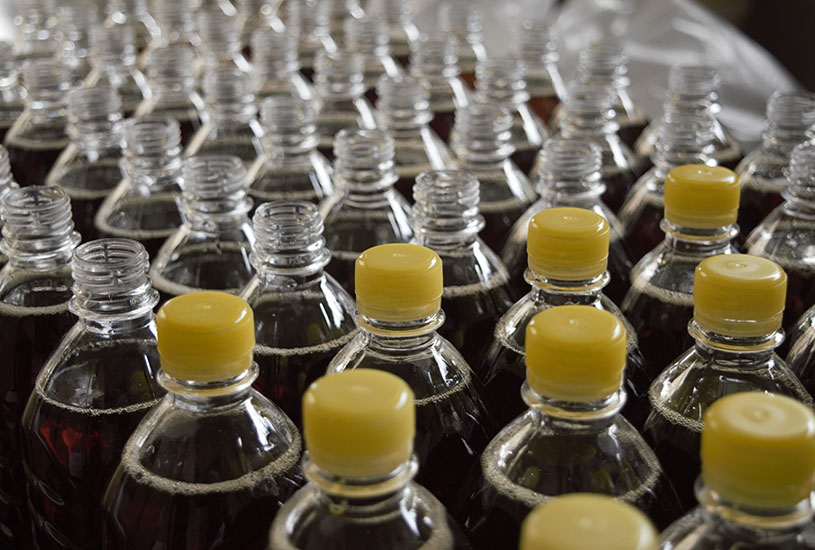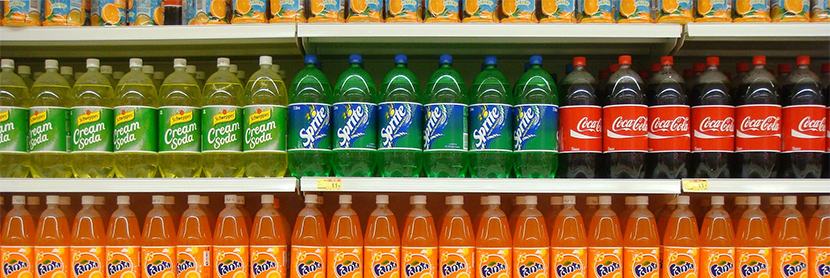Sales of soft drinks within a Melbourne hospital dropped by more than a quarter during an Australian-first trial of a sugar tax.
Monitored by researchers from Deakin University’s Global Obesity Centre, the trial, carried out at a convenience store in The Alfred over 17 weeks, increased the cost of sugary drinks by 20 per cent.
The results, recently published in “The Journal of the Academy of Nutrition and Dietetics”, showed sales of the sugary drinks dropped by 27.6 per cent by the final week of the trial, while sales of water increased by almost the same amount.
Lead researcher Miranda Blake, Associate Research Fellow at the Global Obesity Centre within Deakin’s Centre for Population Health Research, said there had been limited real-world evidence of how an increase to the price of sugar sweetened beverages would change purchasing behaviour in Australia.
“This trial shows that a 20 per cent increase to the cost of sugary drinks can have a significant impact on lowering consumption,” Ms Blake said.
The research was conducted to mirror what a proposed sugar tax would look like, something public health advocates argue the Australian Government should introduce to address the nation’s obesity and oral health problems.
[testimonial_text]Sugary drinks are considered a good target for price manipulation because of their association with increased risk of health issues like obesity and dental decay, their minimal nutritional benefits and the apparent responsiveness of purchases to price changes.[/testimonial_text]
[testimonial_picture name=”Miranda Blake” details=”Associate Research Fellow Global Obesity Centre”]
 [/testimonial_picture]
[/testimonial_picture]“But in addition to government regulation, there is the potential for retailers to independently alter prices of sugar sweetened beverages. This research shows that such a ‘bottom-up’ approach can effectively improve customer’s beverage choices,” Ms Blake said.
“Voluntary changes by retailers, which make healthy choices relatively more attractive and affordable, may be particularly appealing to retail outlets in community health promotion settings like hospitals, healthcare centres and sports and recreation facilities.”
Kia Noble, dietitian at The Alfred, said Alfred Health was dedicated to promoting a healthy community and preventing illness and disease.
“This trial is a good example of how small changes can influence buyer’s choices without affecting the bottom line of the retailer,” Ms Noble said.
“The work we’ve done here at Alfred Health could be implemented at all retailers across the country and influence significant change.”
Project supervisor Dr Kathryn Backholer, a Senior Research Fellow at Deakin’s Global Obesity Centre, said as part of the trial researchers interviewed customers and staff to get their perspective on the price increase.
[testimonial_text]About a third of the customers surveyed said the price difference had changed their purchasing decision, or would have changed it. Nearly two thirds of those surveyed said they agreed with intervention.[/testimonial_text]
[testimonial_picture name=”Dr Kathryn Backholer” details=”Senior Research Fellow Global Obesity Centre”]
 [/testimonial_picture]
[/testimonial_picture]“This shows there is growing momentum from community retailers to offer healthier food and drinks to their customers,” Dr Backholer said.
“This is commendable leadership that will result in positive population health outcomes.”
Published by Deakin Research on 15 September 2017




